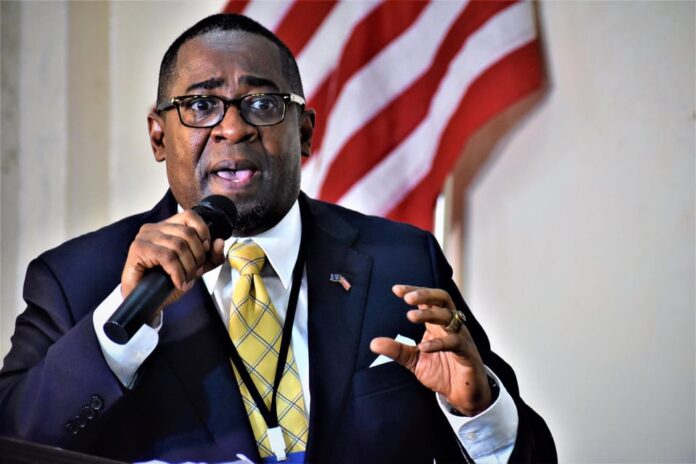The West African Management Development Institutes Network (WAMDEVIN), has called on the Chief Executive Officers of Management Development Institutes (MDIs) in West Africa to adopt quality assurance system in Learning, Training and Development (LTD) in order to public demands and expectations.
Speaking during a webinar series with the theme: “Fundamentals of Quality Assurance in Learning, Training and Development”, WAMDEVIN President, Prof. Alexander Yonly from Liberia, who was represented by the Executive Secretary, WAMDEVIN, Dr. Kolawole Olowe, said the theme of the webinar series would provide a platform for ensuring that all training programmes are subjected to robust quality assurance processes from identification of needs to delivering, assessment and evaluation of courses for effectiveness.
Mr. Michael Guard from the United Kingdom (UK) in his paper titled “General Principles of Quality Assurance to Training Cycle” asserted that quality assurance is needed throughout all the stages of training cycle, stressing that engagement with and involvement of quality assurance representatives at the outset of all training design or review of existing training programmes is crucial.
“The quality of programmes and application of quality assurance processes is measured in line with organisational performance indicators, and is embedded in overall functional performance monitoring with LTD.
Mrs. Patricia Ivbijaro-Erinfolami, the United Kingdom based consultant in her presentation, noted that internal quality assurers are often naturally responsible for staff, systems and procedures. She explained that the role of internal quality assurer needs to be consistent, reliable and fair. She went further to state that the role of an Internal Quality Assurer (IQA) is to plan what will be monitored, from whom and where; observe trainer and assessor performance, provide developmental feedback and facilitate the standardisation of practice consistency.
Mr. Idowu J. Olowe, the Principal Consultant at WCA Academy, United Kingdom, said that quality audit and documentation of all training programmes will allow evidence of action taken, consistency and standardisation of practice across MDIs; gives guidelines and structure to good practice and offers opportunity to share good practice that could be referred to through documentation.
Dr. Emmanuel Imafidon of Lagos Business School, Pan-Atlantic University, noted that the emergency of COVID-19 necessitated the cultural shift in Learning, Training and Development to virtual method. He opined that quality assurance is needed in learning, training and development.
“This is because while training interventions can indeed change the whole organisation, the culture change scenario differs from ‘normal’ training. Normal training is in pursuit of change in competencies in individuals, but change in culture involves change in the way things are done in the organisation. This implies that quality assurance is a culture not just an ability”.
He went further to emphasise that the modern learner is eager to learn and that 94% of employees say they would stay longer at their organisation if their employer invested in their career development, 49% prefer to learn at the point of need, 58% of employees prefer opportunities to learn at their own pace while 68% of employees prefer to learn at work.
Mrs. Akinyemi Bamidele of Petros Management Consulting Ltd. and also a member of Lagos State Judiciary Commission charged the participants to be the change agent for proper transfer of knowledge and skills in their respective MDIs. She went further to state that quality is for everyone, by everybody including all stakeholders that is, organisations, clients, government, facilitators.























